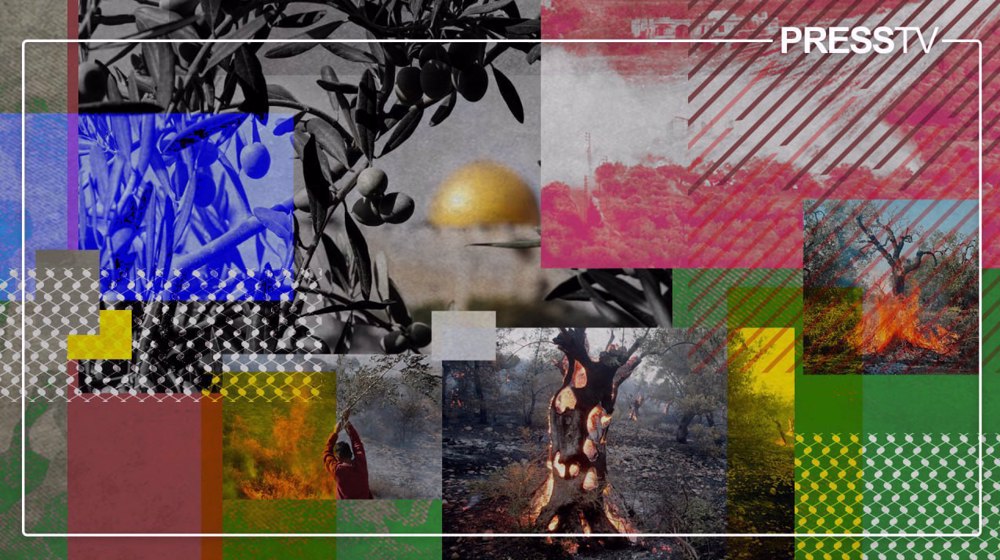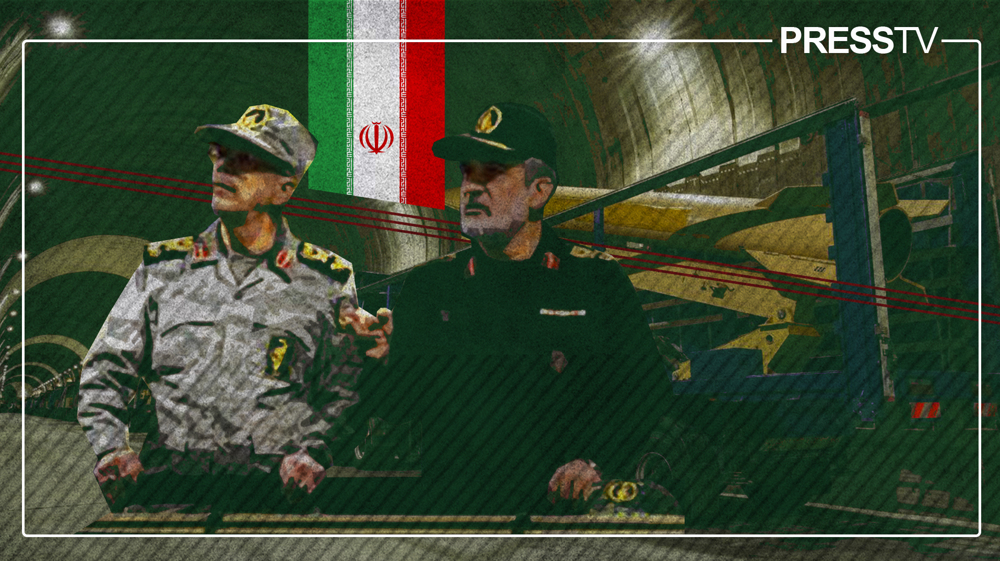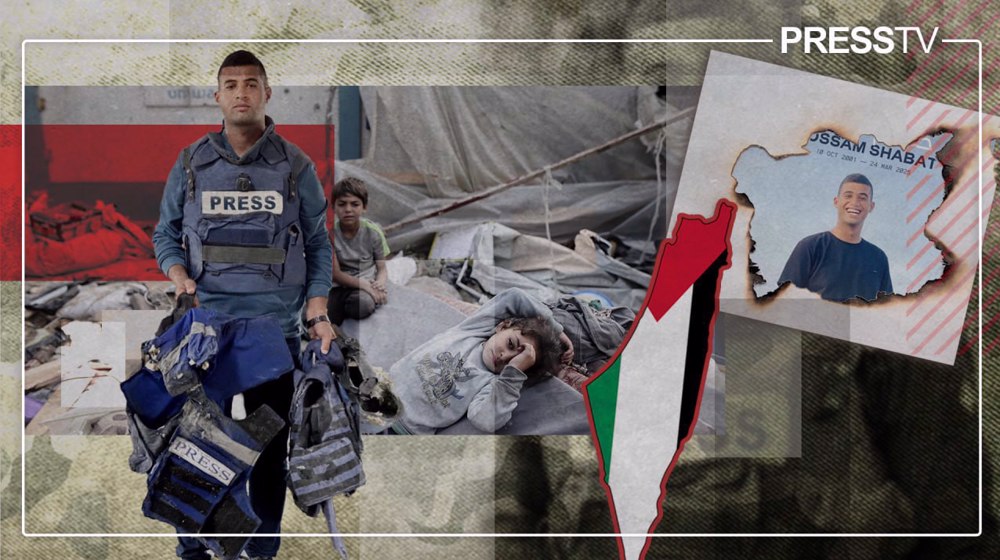Hossam Shabat, 23-year-old Gaza journalist silenced for telling untold stories of genocide
By Humaira Ahad
"This land (Palestine) is ours, and it will be the highest honour of my life to die defending it and serving its people," said Hossam Shabat, a 23-year-old Palestinian journalist who became the voice of his people in Gaza amid the genocidal war.
"I ask you now, do not stop speaking about Gaza. Do not let the world look away. Keep fighting, keep telling our stories—until Palestine is free."
Shabat was killed in a targeted attack by Israeli occupation forces in Beit Lahiya, northern Gaza, on March 24. His best friend, Mohammed Nidal, who was accompanying him in the car, also lost his life in the attack.
Shabat was one of the few journalists who remained in northern Gaza throughout Israel’s genocidal war, which began on October 7, 2023. He bravely told the untold stories of his people, stories of more than 50,300 souls that vanished into thin air.
His fearless coverage of Israel’s relentless military assaults on the besieged strip provided a window into what was unfolding there and prevented Western media spin doctors from manipulating facts.
“If you’re reading this, it means I have been killed, most likely targeted, by the Israeli occupation forces. I documented the horrors in northern Gaza minute by minute, determined to show the world the truth they tried to bury," he wrote in a note that his friends published after his death.
"I slept on pavements, in schools, in tents—anywhere I could. Each day was a battle for survival. I endured hunger for months, yet I never left my people’s side. By God, I fulfilled my duty as a journalist. I risked everything to report the truth, and now, I am finally at rest—something I haven’t known in the past 18 months. I did all this because I believe in the Palestinian cause."
The young Palestinian journalist, who risked his life every single day to expose Israel’s genocidal crimes in Gaza, was a third-year college student before the war began.
“When this all began, I was only 21 years old, a college student with dreams like anyone else. For the past 18 months, I have dedicated every moment of my life to my people,” Shabat wrote in an X post.
Shabat lamented that he would never complete his degree after the Israeli occupation forces bombed his university and every other university in targeted attacks.
When the occupation forced people to flee toward south, Shabat stayed in the north to document the war, braving enormous risks.
“When we were displaced to the south, he walked with us partway but didn’t want to leave here. The whole time we were in Nuseirat (in central Gaza), I would call and beg him to come, but he refused,” Amal Shabat, his grieving mother, was quoted as saying after Shabat’s killing.
After a ceasefire was declared in Gaza in late January, the family returned to Gaza City to reunite with him after almost 492 days. However, Shabat’s work made it difficult for him to spend enough time with his mother. Desperate to be close to her son, Amal followed him wherever he was working, often near the most dangerous sites.
Sensing imminent danger, Shabat told his family that he was receiving death threats from the occupation. Despite this, he continued reporting on Israel's atrocities.
“He knew, he knew that to be a journalist in Gaza, to tell the truth, meant that he would be killed,” said his friend Mahmoud, adding that Shabat had narrowly escaped death once.
In October 2024, the Israeli military placed Shabat and five other Palestinian journalists on a 'hit list'. The 23-year-old felt he was being "hunted" and urged people to speak out using the hashtag #ProtectJournalists.
"I call on everyone to share the reality journalists are experiencing in order to raise awareness about the real plans of the Israeli occupation to target them and impose a media blackout. Share the hashtag and talk about us," Shabat said after facing threats from the Zionist regime.
He was injured in an Israeli airstrike in November 2024. “We would retreat when the bombing got too much, but he would go closer, to cover it. We were scared for him often,” Mahmoud recalled.
Hours before his martyrdom, Shabat messaged a friend about the worsening situation in northern Gaza amid relentless assaults by the occupation forces.
“The situation in Jabalia is difficult,” he wrote. Shabat had been forced to leave his hometown of Beit Hanoun in northeastern Gaza as Israel renewed its offensive on the besieged territory.
In his last article for US-based news site Drop News, Shabat detailed the new wave of Israeli strikes in northern Gaza after Israel blatantly breached the ceasefire agreement.
“In the first six days of this renewed military operation, northern Gaza witnessed four bloody massacres. The most notable was the Mubarak family massacre, which took place as the family was gathering in mourning to offer their condolences to Dr. Salim Mubarak," he wrote.
"In an instant, their collective grieving was turned into a sea of blood and body parts. The entire family was killed: Dr. Salim, his wife, his children, and his parents. No one survived. One eyewitness summed it up plainly: ‘They were all killed.’ The victims were not on a battlefield but in a house of mourning. It was a crime in every sense of the word.”
Beyond his dedication to journalism, which he loved, Shabat was also known for his kindness and compassion.
“He was pure. He was innocent. There was a gentleness in him that never hardened, even in war. A softness that stayed untouched by the noise around him. He believed in beauty, in love, in something better,” his friends said.
According to his family, he used his media connections to help collect humanitarian aid for those in need in northern Gaza.
To his friends, Shabat was more than a journalist—he was a young man full of dreams. “He was humorous and lively. He loved dressing well, even in the middle of chaos. He would say, 'What if I run into a cute girl while reporting? I want to look good!'”
Like many young people his age, Shabat dreamed of falling in love and building a family. “He talked about the future like he believed in it—like it was something real and reachable. He wanted more than headlines and frontlines. He wanted soft mornings, quiet dinners, and laughter with loved ones,” his friends wrote on his X account.
Shabat longed to see his bleeding and bruised land free from occupation and often voiced his hope for a liberated Palestine.
“He longed for peace—not just for his people but for his own soul. A chance to breathe freely, to explore, to just be,” reads a recent post on Shabat’s X account.
He is gone, but his dream lives on — so does the struggle for the liberation of occupied territories from the grip of the West-backed settler-colonial Zionist regime.

Explainer: Trump doubles down on bid to grab Greenland – what’s really behind it?

Palestine Land Day: A powerful emblem of resistance against settler-colonialism

Explainer: What does Iran's largest subterranean 'missile city' reveal?
Bill to seize mosques in India gains presidential assent
Over 600,000 children in Gaza at risk of ‘permanent paralysis’: Ministry
Yemen accuses US of targeting civilians in Eid airstrike
VIDEO | US bombing campaign fails to deter Yemen
Hamas calls for mass participation in general strike in West Bank
Europe standing on wrong side of history by appeasing Israel: Iran
Israel plans to cut off Rafah from rest of Gaza by establishing new corridor
Araghchi says no round of talks held between Iran and US







 This makes it easy to access the Press TV website
This makes it easy to access the Press TV website